- Learning time
- 40 minutes
- First play time
- 150 minutes
Transatlantic
Designed by: Mac Gerdts
A new beast is breaking the waves: steamships! Powered by coal, they defy wind and tide to take over the oceans and bring the age of sail to an end. A century from now we might regret all this coal consumption, but at this point it’s all about proving yourself the best transatlantic industrialist: buying boats, investing in lines, making cash!
In Transatlantic each player begins the game with two ships on the board (one sailing ship; one steamship carrying a cube of coal) which is divided into several regions. In your hand you have seven cards: on your turn, you simply play a card to the table and perform the action on it. The actions are pretty straightforward: add coal to your steamships, transport ships (paying coal and receiving cash), transport all ships in one region (including opponent’s ships!), buy ships from the market, copy another player’s just-played card, and invest. Invest is kind of a double-action. It lets you place a trade house in a region, and whenever your ships in that region transport, they’ll score points: the amount of ships transporting multiplied by the amount of trade houses you have there.
Secondly investing gives you shares: you add the shares of the colour you chose (green: freight, red: passengers, white: mail, black: coal) to your personal investment board, and these will pay out points for you at the end of the game, or when a ship is too old and gets bumped out of an ocean by a freshly-minted boat. Note at this point that every ship has a colour. and matching-coloured ships are considered part of the same line.
Your seventh card is the Director: this does two things as well, firstly enabling you to return all your played cards to your hand and secondly adding a new card (and instantly playing it) from a face-up display. These cards are all improvements on the basic cards you started the game with, so getting one that suits your strategy is key.
Whenever someone buys ships from the market, the lowest-valued ship left over gets shifted to the docks. Effectively they’re out of the game, as they now can’t ever be purchased – but these ships still have an important role to play. The value of your ships either when pushed off the board, or at the end of the game, is defined by two things: your investment in that ship’s colour, and how many matching-coloured ships sit in the dock. If, for instance, you have four red ships, each one will score both the amount you invested in the red line, plus a point per matching-coloured ship in the docks.
So getting pushed out of the ocean isn’t all bad, as the ship gets one final transport for free – if it has the coal to do so – and score it before discarding from the game. The contest ends when all ships have been bought from market, and after final scoring for both ships and money, plus some bonuses for diverse investment on your player board (don’t take these lightly!) the player with the most points wins.
The guru's verdict
-
Take That!
Take That!
No combat or overt nastiness, but more interaction than one might first assume: spaces are limited for trade houses and ships, and best-laid plans may go awry when someone pushes you out of an ocean, plays a Region card, or snaps up something alluring from the display...
-
Fidget Factor!
Fidget Factor!
HIgh on a first play, dropping to moderate. It's probably never going to be as breezy as the sea air, considering the amount to think about.
-
Brain Burn!
Brain Burn!
The clever card system - also utilised in Concordia - curtails your options, but despite the seeming limited choices there is quite a lot to compute - not so much what to do, as when best to do it. You want to but ships and invest, but to do that you need money. You want to transport to make money, but to do that you need coal. From that it seems like a simple pattern emerges (coal>transport>invest/buy and repeat) but it's somewhat complicated by the other players...
-
Again Again!
Again Again!
The story of the game never really changes, but it's always a tactical battle for supremacy.

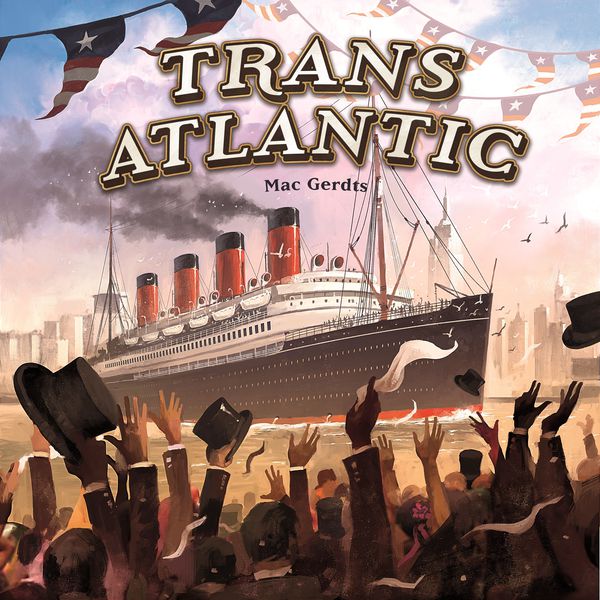

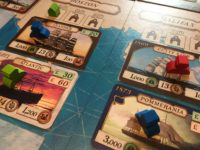


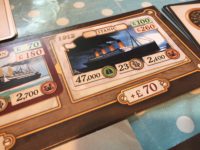


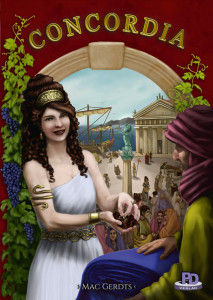

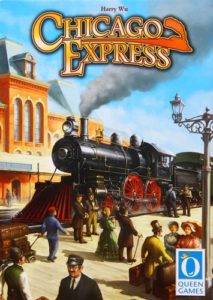
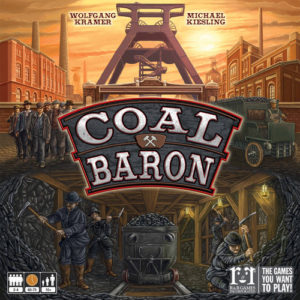
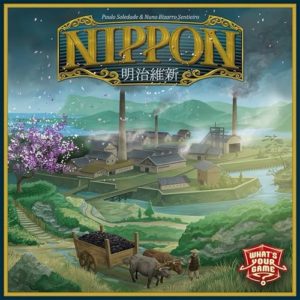

Sam says
There's a few things we've glossed over, such as the Blue Riband shares for fastest ship and the end-game investment scoring, but this gives you a reasonable overview. Though I think this designer's Concordia (originator of the card system that Transatlantic borrows from) is kind of a classic, it is also pretty dry (no pun intended) and I was hoping Transatlantic might have a more engaging narrative. For me it's a mixed success - I do feel there's a smidgen more story here than the slightly abstracted-feeling predecessor, but it suffers from an underwhelming appearance (the ship cards are great, but that attention to detail doesn't seem to be applied anywhere else) and a feeling that the game goes on a little longer than it should. The scoring at the end is a bit fiddly as well. But I do enjoy it - like Concordia, everyone is busy with their own plans until they find someone has - inadvertently or not - sabotaged them.